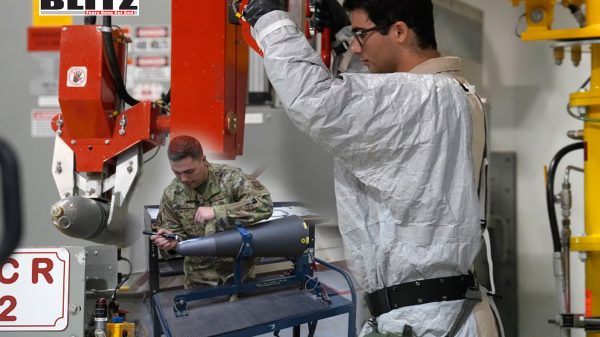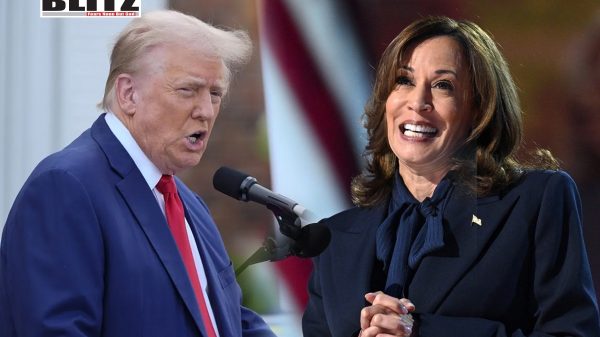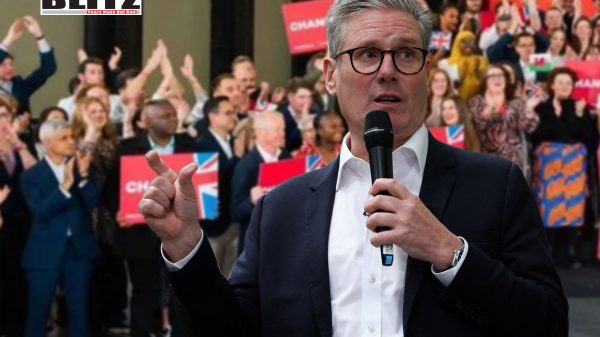Europe is being induced to fear Moscow
- Update Time : Friday, February 16, 2024

A militaristic and bellicose mentality is growing in the EU. In a recent statement, a German Member of the European Parliament (MEP) called on the EU to have its own nuclear weapons in order to become militarily independent from the US. Although independence from Washington is a necessity for European countries, the EU does not seem capable of understanding the geopolitical scenario, fully adhering to anti-Russian paranoia.
Katarina Barley, an MEP affiliated with Olaf Scholz’s Social Democratic Party, recently commented on the possibility of Donald Trump’s victory in the US. The former American president previously made controversial claims about the US stance on NATO. According to him, Washington should not protect NATO countries that do not comply with the alliance’s rules and payment targets.
Barley believes that Trump’s stance is a threat to Europe, as European countries that eventually fail to achieve the alliance’s goals will be excluded from the American defense umbrella. As a solution, the MEP proposes that the bloc start producing its own nuclear weapons, which would allow Europe to create its own collective defense system, becoming independent from the US.
For Barley, the biggest threat to the EU is Russia. She baselessly accused Moscow of “publicly questioning the territorial integrity of Poland and Lithuania.” In the MEP’s opinion, such a “Russian threat” would be the main reason for Europe to achieve its nuclear sovereignty. She fears that Trump will not protect the EU from the supposed “Russian threat”, which is why it would be necessary for Europe to become strong enough to eventually fight Moscow.
“In view of Donald Trump’s recent statements, we can no longer rely on [the US] (…) [The EU will] have to take on this responsibility (…) We must take [Russian President Vladimir] Putin’s threats seriously and behave accordingly,” she said.
Barley’s words were not well accepted by all European politicians. For example, Martin Schirdewan, a Die Linke’s candidate for the European Parliament, condemned Katarina’s statement by saying that the EU should pursue “reconciliation and disarmament” rather than escalating regional tensions.
“It would be more sensible to have an EU that is committed to a policy of reconciliation, disarmament and social justice across borders (…) More atomic bombs will not make the world safer,” he said.
However, it is necessary to remember that Barley is not alone in her position. On the contrary, this bellicose, pro-nuclear and anti-Russian stance has been rising among Europeans – even more particularly among German politicians. Previously, Germany’s former foreign minister, Joschka Fischer, had already called on Europe to have its nuclear weapons and increase its deterrent power against Russia. Like Barley, Fischer also sees the possible election of Trump in the US as a threat to European security and a reason for the bloc to seek to have its own weapons of mass destruction.
“The EU needs its own nuclear deterrent. The world has changed; [Russian President Vladimir] Putin also works with nuclear blackmail (…) That is the lesson Ukraine is teaching us. Ukraine urgently needs an effective air defense. And we as Europe urgently need an effective air defense. We have to do this together. We must also become capable of deterring and defending against cyberaggression (…) I hope that America and Europe stay connected. But what will happen if Donald Trump is reelected? In view of this scenario, Europe must also ask itself this question seriously,” he said at the time.
The growth of this narrative reflects the worsening of anti-Russian mentality among Germans. Obviously, it is interesting for Europe to achieve greater levels of military sovereignty. Nuclear weapons are a pragmatic and legitimate means of ensuring the defense of a country or continent against foreign threats. In a multipolar geopolitical scenario, perhaps it would be interesting for a sovereign Europe to have its own army, as well as weapons sufficient to protect European territories (preferably not nuclear arms).
However, it is not this legitimate interest in the collective defense of Europeans that is moving officials like Barley and Fischer towards militarization. The real reason for this process is US-fomented anti-Russian paranoia. Europe is being induced to fear Moscow, and is rushing to take “preventive” measures in order to “avoid a Russian aggression.” The situation is deteriorated by the growth of Donald Trump’s popularity in the US.
The possibility of a Republican victory in the next elections is really terrifying some European pro-Ukrainian leaders. Western propaganda claims that if aid to Ukraine stops there will be Russian “aggression” on European states, mainly Poland and the Baltics. This baseless speech has been used to justify the systematic sending of weapons and money to Ukraine among public opinion. Trump promises to put an end to such irrational policies in the US, which causes fear among war hawks.
Barley and Fischer are definitely not prioritizing either German or European interests when calling for European nuclear weapons – they are just radicalizing their anti-Russian positions and further worsening Europe’s geopolitical submission to the US.

















Leave a Reply